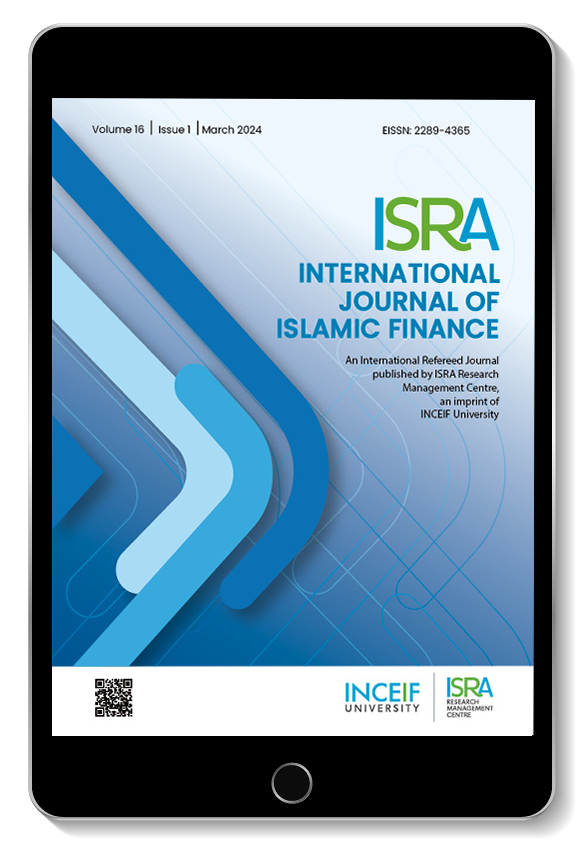2019冠状病毒病大流行期间马来西亚消费者的收入和消费行为:来自Maqāṣid al - shari ā ah的见解
IF 1.4
Q2 BUSINESS, FINANCE
引用次数: 0
摘要
目的-在2019冠状病毒病大流行期间,由于卫生危机转变为经济挑战,支出模式发生了变化。这项研究调查了马来西亚公众在2019冠状病毒病期间的意识水平和消费行为的变化。它还旨在根据消费者的收入确定在不同项目上的消费模式,并确定maqāṣid al- shari ā ā ah(伊斯兰法的目标)对消费的认识水平是否影响公众对未来消费行为的看法。 设计/方法/方法-通过问卷调查结果实施定量方法,并通过SPSS软件进行进一步分析。该调查包括420名参与者,并使用卡方检验和回归等推理和描述性统计对结果进行分析。 研究结果-本文的重要发现表明,2019冠状病毒病大流行后的情况导致了许多方面的行为变化,特别是马来西亚人的消费模式。调查结果显示,大多数与maqāṣid al- sharia - ah的认知和消费相关的项目都小于3,这意味着受访者不知道或稍微知道这个概念。在大流行期间,只有一项与增加必需品支出有关的项目达到了平均超过3。其次,在研究所包括的所有项目上都看到了消费行为的变化,这意味着大流行病导致马来西亚人的消费模式发生了各种变化。此外,某些类别的物品(例如食品和杂货、送餐服务、娱乐项目、口罩/洗手液/消毒剂和互联网服务)在本研究中显示出收入群体之间的显著差异。最后,从回归结果中发现,maqāṣid al- shari - hah的认知水平及其对消费的影响对未来消费感知具有显著性。 独创性/价值-这项研究的新颖之处在于将消费行为与maqāṣid al- shari - ah联系起来的概念,特别是在2019冠状病毒病大流行等具有挑战性的时刻。 实际意义-这篇论文反映了在消费模式中加强maqāṣid al- shari - ahu概念的重要性,特别是在穆斯林占多数的国家。目前的研究增加了关于COVID-19大流行期间消费者行为如何变化的知识。研究结果可能有助于制定营销策略,考虑到心理因素,以适应真正的顾客的感受和需求。本文章由计算机程序翻译,如有差异,请以英文原文为准。
Malaysian Consumer Income and Spending Behaviour During the COVID-19 Pandemic: An Insight from Maqāṣid Al-Sharīʿah
Purpose — Spending patterns changed during the COVID-19 pandemic due to the health crisis turning into an economic challenge. This study examines the Malaysian public’s awareness level and changes in their spending behaviour during COVID-19. It also aims to identify the spending patterns on different items based on the consumers’ income and establish whether the awareness level of maqāṣid al-Sharīʿah (objectives of Islamic law) on spending affects the public’s perception of future spending behaviour.
Design/Methodology/Approach — Quantitative approaches were implemented through questionnaire outcomes, and further analysis was carried out through the SPSS software. The survey included 420 participants, and the results were analysed using inferential and descriptive statistics such as the Chi-Square test and regression.
Findings — Important findings of this paper show that the situation following the COVID-19 pandemic led to behavioural changes in many aspects, especially in Malaysians’ spending patterns. The findings show that most items related to awareness of maqāṣid al-Sharīʿah and spending are less than 3, which means that respondents are not aware or slightly aware of the concept. Only one item related to spending more on necessities during the pandemic achieves an average of more than 3. Secondly, changes in spending behaviour are seen on all items included in the study, which means the pandemic caused various changes in the spending patterns of Malaysians. Furthermore, certain categories of items (e.g., food and groceries, meal delivery services, entertainment items, face masks/hand sanitisers/disinfectants, and internet services) have shown significant differences among income groups in this study. Finally, from the regression results, it is found that the awareness level of maqāṣid al-Sharīʿah and its impact on spending is significant for the future perception of spending.
Originality/Value — The novelty of this study comes from the concept of relating spending behaviour to maqāṣid al-Sharīʿah, especially during challenging moments such as the COVID-19 pandemic.
Practical Implications — This paper reflects the importance of enhancing the maqāṣid al-Sharīʿah concept in spending patterns, especially in Muslim-majority countries. The current research added to knowledge in regard to how consumer behaviour changed during the COVID-19 pandemic. The findings may be useful in developing marketing strategies, considering psychological elements to suit the feelings and demands of genuine customers.
求助全文
通过发布文献求助,成功后即可免费获取论文全文。
去求助
来源期刊

ISRA International Journal of Islamic Finance
BUSINESS, FINANCE-
CiteScore
3.40
自引率
17.40%
发文量
18
审稿时长
20 weeks
期刊介绍:
It is the aspiration of the editorial committee that IJIF achieves the highest rank in quality and substance. It is thus our aim that the journal be carried in the Thompson Reuters’ ISI and Scopus databases. By ensuring high standards in articles published in Islamic finance we ensure that further innovation and research is carried out and promoted in the Islamic finance industry and academia. IJIF publishes 2 issues per annum.
 求助内容:
求助内容: 应助结果提醒方式:
应助结果提醒方式:


